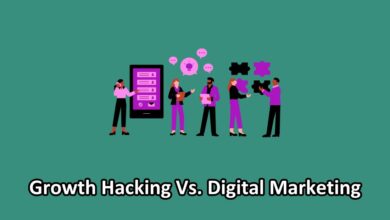Outsourcing Vs Freelancing: Future of Work
In today’s dynamic business landscape, the concept of outsourcing and freelancing has become more crucial than ever. Imagine having the power to scale your business or career by tapping into a vast pool of global talent or gaining the flexibility to choose your projects and work from anywhere.
Outsourcing involves contracting out specific business functions to third-party providers, often offshore, to reduce costs and enhance efficiency. On the other hand, freelancing empowers individuals to offer their skills and services independently, often working on a project-to-project basis.
Both models present unique opportunities and challenges that businesses and professionals must navigate in the modern work landscape.
Outsourcing vs. Freelancing (A Comparison)
| Outsourcing | Freelancing |
|---|---|
| Outsourcing involves contracting out specific business functions to third-party providers, often offshore, to reduce costs and enhance efficiency. | Freelancing empowers individuals to offer their skills and services independently, often working on a project-to-project basis. |
| In outsourcing, businesses form long-term relationships with external entities or third-party companies. | Freelancing, on the other hand, is characterized by shorter-term, individualized arrangements. |
| Outsourcing commonly involves larger, more complex projects or processes that necessitate a dedicated team or specialized expertise. | Freelancers are usually hired for smaller, well-defined tasks or projects. |
| In outsourcing, clients grant a certain level of autonomy to the external team to manage day-to-day activities. | Freelancers operate with greater client oversight and management. |
| Outsourcing engagements are larger in scale, involving substantial financial commitments. | Freelancing engagements are smaller in scale and suitable for tasks that do not require a massive team or ongoing, full-time support. |
| Outsourcing contracts are comprehensive, covering a wide range of services, service levels, and performance metrics. | Freelancers work based on simpler contracts, outlining the scope of work, timelines, and compensation. |
What an Outsourcing is?
Outsourcing is a strategic business practice where organizations delegate certain tasks or functions to external service providers. This could range from customer support and IT services to manufacturing and accounting.
By doing so, businesses can focus on their core competencies while benefiting from specialized expertise and cost efficiencies. Outsourcing can be onshore, nearshore, or offshore, depending on the geographical location of the service provider.
Characteristics of Outsourcing
- Specialized Expertise: Outsourcing allows companies to tap into the specialized skills and knowledge of external professionals, often leading to improved quality and efficiency.
- Cost Efficiency: One of the primary motivations for outsourcing is cost savings. Companies can leverage lower labor and operational costs in different regions, enhancing their overall competitiveness.
- Global Talent Access: Outsourcing opens doors to a global talent pool, providing access to diverse skills and perspectives that may not be readily available in-house.
- Focus on Core Competencies: By outsourcing non-core functions, businesses can concentrate on their core competencies, fostering innovation and strategic growth.
- Scalability: Outsourcing offers scalability, allowing organizations to adapt quickly to changing demands by adjusting the volume of outsourced services.
What is Freelancing?
Freelancing is a work arrangement where individuals operate as independent contractors, offering their skills and services on a project-by-project basis. Freelancers are not bound to a single employer and have the flexibility to choose the projects they take on, setting their own schedules and working from virtually anywhere.
Characteristics of Freelancing
- Flexibility: Freelancers enjoy the freedom to choose their working hours, locations, and projects, providing a level of flexibility often unmatched in traditional employment.
- Autonomy: Freelancers are their own bosses, making decisions about the projects they take on, pricing, and overall business strategy.
- Diverse Portfolio: Freelancers often work on a variety of projects for different clients, building a diverse portfolio that showcases their skills and expertise.
- Direct Client Interaction: Unlike traditional employees, freelancers typically have direct interactions with clients, fostering closer relationships and better communication.
- Variable Income Streams: Freelancers may experience income variability due to project-based work, but they can also have multiple income streams by working with various clients simultaneously.
Key Differences Between Outsourcing and Freelancing
- Scope of Work: Outsourcing commonly involves larger and more complex projects or processes that may require a dedicated team or specialized expertise. Freelancers, on the other hand, are usually hired for specific, well-defined tasks or projects.
- Control and Management: In outsourcing, the client often has less direct control over the day-to-day activities of the external team. On the other hand, clients typically have more direct control and involvement in the management of freelancers. They may provide detailed instructions, set deadlines, and have more hands-on control over the freelancer’s work.
- Scale and Size of Engagement: Outsourcing arrangements are generally larger in scale and involve more significant financial commitments. In contrast, freelancing engagements are often smaller in scale and are suitable for tasks or projects that do not require a massive team or ongoing, full-time support.
- Contractual Agreements: Outsourcing contracts are typically comprehensive and may cover a wide range of services, service levels, and performance metrics. On the other hand, freelancers usually work based on simpler contracts or agreements that outline the scope of work, timelines, and compensation.
Pros and Cons of Outsourcing
Benefits of Outsourcing
- Cost Savings: Outsourcing allows businesses to lower operational costs significantly, especially when leveraging the cost differences in labor and infrastructure between regions.
- Focus on Core Competencies: Companies can concentrate on their core functions by outsourcing non-core activities, leading to increased efficiency and innovation.
- Global Market Access: Outsourcing facilitates entry into global markets by providing access to diverse skill sets and local market knowledge, aiding in international expansion.
- Risk Management: External service providers often have specialized knowledge in risk management, helping businesses navigate challenges and compliance issues.
- Scalability: Outsourcing provides scalability, allowing businesses to easily scale up or down based on market demands, without the challenges of hiring and training in-house staff.
Cons and Challenges of Outsourcing
- Communication Barriers: Time zone differences and language barriers can lead to communication challenges, affecting collaboration and understanding between in-house teams and external service providers.
- Quality Control: Maintaining consistent quality across outsourced projects can be challenging, requiring robust communication and monitoring systems to ensure standards are met.
- Dependency Risks: Overreliance on external partners can pose risks, especially if the service provider faces financial instability or undergoes significant changes that impact service quality.
Pros and Cons of Freelancing
Benefits of Freelancing
- Flexibility and Autonomy: Freelancers enjoy the freedom to choose when and where they work, allowing for a better work-life balance and increased job satisfaction.
- Diverse Portfolio Building: Freelancers can diversify their skills and build a comprehensive portfolio by working on a variety of projects for different clients.
- Income Potential: Successful freelancers can have higher earning potential, as they set their rates and can take on multiple projects simultaneously.
- Skill Enhancement: Freelancers are often exposed to a wide range of projects, providing continuous opportunities for skill development and staying current in their field.
- Work-Life Integration: Freelancing allows for seamless integration of work into personal life, enabling individuals to design their schedules around personal commitments.
Cons and Challenges of Freelancing
- Income Variability: Freelancers may face irregular income due to the project-based nature of their work, requiring effective budgeting and financial planning.
- Isolation: Working independently can lead to feelings of isolation, as freelancers lack the social interactions that come with traditional office environments.
- Administrative Responsibilities: Freelancers must handle administrative tasks such as invoicing, taxes, and marketing themselves, which can be time-consuming and detract from billable hours.
Trends Shaping the Future of Work
Trends in the Workforce, Such as the Rise of Remote Work and the Gig Economy
The workforce is undergoing a transformative shift, marked by the rise of remote work and the gig economy. The traditional 9-to-5 office model is evolving, with more companies adopting flexible remote work arrangements.
The gig economy, characterized by short-term and freelance engagements, is thriving as individuals seek autonomy and diverse income streams.
How Outsourcing and Freelancing Fit Into the Evolving Landscape of Work
Outsourcing and freelancing seamlessly align with the changing dynamics of the workforce. As companies embrace remote work, outsourcing becomes an attractive option to access global talent. Freelancing, with its inherent flexibility, perfectly complements the gig economy trend, allowing individuals to craft their careers independently.
Technological Advancements Impacting the Future of Work
Technological advancements, including artificial intelligence and collaboration tools, are shaping the future of work. Automation is streamlining routine tasks, while virtual collaboration platforms enhance remote work capabilities.
These advancements are influencing how outsourcing and freelancing operate, creating new possibilities for efficiency and collaboration.
Strategies for Finding the Right Fit
Guidance for Businesses on Determining Whether Outsourcing or Freelancing is More Suitable
Choosing between outsourcing and freelancing hinges on the specific needs and goals of a business. For larger-scale, ongoing tasks requiring specialized skills, outsourcing to a dedicated service provider may be optimal. However, for more project-specific or diverse needs, engaging freelancers can provide flexibility and cost-effectiveness.
Conducting a thorough assessment of project requirements, budget constraints, and desired outcomes will guide businesses in making the right choice.
Tips for Individuals in Choosing Between Freelancing and Traditional Employment.
Individuals contemplating the freelancing route should assess their preferences and long-term goals. Freelancing offers autonomy but demands self-discipline and business acumen. Those valuing stability may lean towards traditional employment, where a fixed salary and benefits provide security.
Consider factors like risk tolerance, desired work-life balance, and career aspirations to make an informed decision.
Key Considerations for Both Businesses and Freelancers
In conclusion, businesses and freelancers must weigh the pros and cons to determine the most suitable work arrangement. For businesses, it’s essential to assess the nature of tasks, budget constraints, and the need for ongoing collaboration.
Freelancers should evaluate their skillsets, risk tolerance, and commitment to managing administrative responsibilities. Ultimately, both parties can thrive in the evolving work landscape by making informed decisions aligned with their unique needs.
Conclusion
In the ever-evolving tapestry of work, the choices between outsourcing and freelancing paint distinct yet interconnected strokes. Whether businesses seek to optimize efficiency through outsourcing or individuals embark on the freelancing journey for autonomy, the future of work is undeniably dynamic.
As technology continues to reshape possibilities, the key lies in adaptability. So, whether you’re a business seeking global talent or an individual crafting your freelance path, embrace the opportunities and navigate the challenges, for in the confluence of outsourcing and freelancing, lies a canvas rich with potential. The future of work is not just a destination; it’s a journey we all contribute to, one project at a time.



